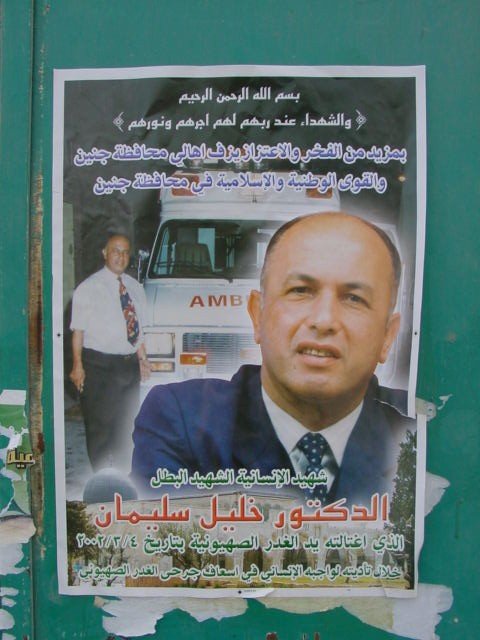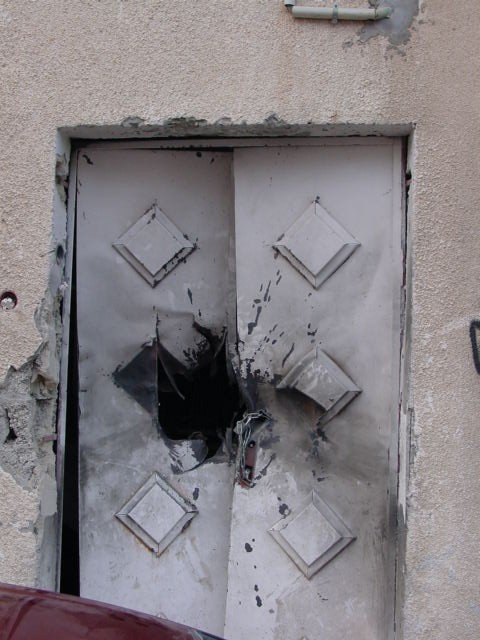March 11, 2002
The Latin School students lining up for morning assembly in Zababdeh.
All the teachers and students from all of their villages came to school on time this morning (well, a few were late, but they're the kids who are always late)! Wonderful news. People have renewed hope that Zinni's visit may bring peace here. On the one hand, you want to celebrate the optimism and hope that this signals. On the other, you want to question its naivete.
A martyr poster form Dr. Khalil Suleiman, head of Jenin’s Red Crescent Society.
In the afternoon, we joined the official delegation from Zababdeh as it headed up to Jenin Camp. Elizabeth was the only woman in the number, but she was welcomed as openly as the rest of the group, even as she shook hands and sat in the Beit al-'Azza, where men were mourning the camp's dead (Both Christians and Muslims have intensive periods of visitation following a death, and for both, men and women mourn separately). Abuna Aktham, Zababdeh's mayor, Zababdeh's sheikh, and leaders of the town's political parties and societies were all represented. The group had collected money and food for the people of the refugee camp for the families who had been hit so hard during the recent Israeli incursion. All told, it was about 7000 shekels ($1800) and enough food for 50 families for a week. At a time when the people of Zababdeh are suffering themselves, it was quite impressive to see the powerful message that supporting one another in our times of crisis is important.
Pockmarked wall from an Israeli incursion into the Jenin Refugee Camp.
We dropped off the food and then made our way the to UNRWA offices in the camp to meet with the camp's leaders and officials. On the way, we could see many pock-marked, burned, and crumbling buildings in what was already a situation approaching squalor. The latest "martyr" posters were posted, including one of Dr. Khalil Suleiman who was killed while trying to evacuate an injured girl from the Camp. The people were clearly moved, especially upon hearing that the collections had begun with the students of the Latin School.
A destroyed door in Jenin Camp.
We then headed off to the Beit al-'Azza (the house of mourning), in which families of the fifteen killed were receiving people. It was the third day after their deaths, as is traditional in Arab society for visitation and condolences. We drank our bitter coffee and left.
It was much more of a symbolic and official visit than we were expecting (as foreigners, we are used to being taken to all of the places of destruction and having them pointed out to us), but today we were participating as part of the village delegation, most of whom didn't need another tour of destruction.




